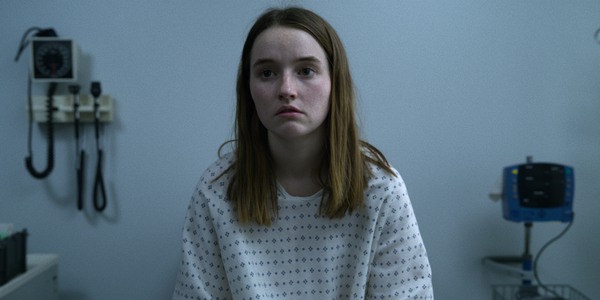I came across a new Netflix series, called ‘Unbelievable‘ and the promo reminded me of a discussion I had, a few days ago. Hesitant to start a new show, I decided to give it a go and I’m glad I did. In general, I’m a sucker for detective shows and films, however, Unbelievable, in particular, was not only a well-made cop show, but also presented an important perspective of a rape case. The victim’s perspective.
Unbelievable begins, with the story of a young girl, who is raped in the middle of the night. The rapist, however, leaves absolutely no trace or evidence, which makes for a frustrating case for the authorities. While the young girl is made to relive her trauma over and over again, as if going through the extremely invasive medical exam was not enough. The victim is asked detailed questions by various detectives, analyzing and scrutinizing, every detail under the lens of suspicion, until she breaks down and chooses to end her misery. She states that the rape did not happen, she dismisses it, as just a bad dream.
For the authorities, it’s yet another case closed and tucked away as a false report, not realising that the case file represents another life destroyed, another soul injured. Yet another woman who, instead of justice, gets condemned. That reminds of a particular dialogue in Unbelievable, that states ‘it’s funny how no one questions a victim complaining of robbery or car theft, but when it comes to sexual assault, we all get suspicious’ (I’m paraphrasing of course)
All through the first episode of Unbelievable alone, I kept thinking, damn, and this is the US, where the authorities are comparatively more sensitised to rape and rape victims, where proper facilities for medical examinations are in place, regulated and ethical. The medical professionals shown in Unbelievable are even empathetic for the most part. So, I kept imagining, what on earth would this victim go through, if she was in our country? Where authorities, even if regulated, are definitely not sensitised. Proper medical facilities for rape examinations, seldom exist and empathy is a far, far cry for us, as society at large.
So, I kept imagining, what on earth would this victim go through, if she was in our country? Where authorities, even if regulated, are definitely not sensitised. Proper medical facilities for rape examinations, seldom exist and empathy is a far, far cry for us, as society at large.
Unbelievable took me back to the recent discussion about an article I had read some time ago. I don’t remember which digital publication carried it, but I do remember reading the latest statistics from the Delhi Commission of Women (DCW), which stated that all of “53.2% of the rape cases filed between April 2013 and July 2014 in the capital were found to be false”. While I do understand that there are a few women out there who decide to use the law (against sexual assault) to harass another individual or one could even argue that a few rackets are operating to extort money, by filing false accusations against innocent men. However, my mind refuses to believe that more than one out of two women reporting sexual assault is false. I wondered what was this statistics based on? And this got me thinking of all the discussions, I have had regarding sexual assault in India.
I have been asked my opinion on the credibility of a victim, one who hadn’t filed a complaint immediately after the abuse. I wondered, if we sometimes forget, just how difficult it is for a woman to speak up against a man, in a highly patriarchal society such as ours. A society where the chastity of a woman is held in higher regard than her life; where a woman is taught to protect her virginity over her autonomy. With such a deeply wired thought process, it is easy for a victim to feel guilty and blame herself for the abuse done onto her.
I, myself, like many, or almost all women in our country have gone through sexual harassment aplenty. In fact, while growing up girls are desensitised to name-calling, eve-teasing and even being groped in public places. The sad part is, that I, like most other girls were taught to disregard these things as petty behaviour by naughty boys and were expected to safeguard ourselves from incidents that seemed inevitable. This teaches most of us, that it is normal for men to see our bodies as objects and that it is our responsibility to protect ourselves from being touched or even seen.
I remember this one incident distinctly, it was my summer vacation after the completion of my fifth standard in school. Like most summer vacations, I was visiting a relative in Hyderabad. This relative had an old couple living next door. The couple seemed compassionate and friendly. They had birds for pets and my cousins and I loved playing with these birds, which became a regular affair. One day, the old man asked me to leave the birds in his room, and as an innocent ten-year-old, I followed instructions, only to realize, that he had followed me inside, while my cousin was right outside the door.
The old man grabbed me and kissed me on my lips. It has been over twenty years and I still remember the fear that trickled down my spine. I was shocked and scared and almost froze. I could not yell or even speak for that matter. I simply pushed him and ran away. What I did next still surprises me. I did not inform anyone in the house, not my relatives, not my grandmother, who was right there and not even my own mother, who was a phone call away. The first time I ever spoke about it was two years later when, that same cousin was visiting me in Mumbai, and we got talking, only to realise that we had both been molested by the same man and believe it or not neither one of us had informed our families, till date.
I’m sure, when my parents read this article, as my dad reads all of my pieces (or is forced to read them), this would come as a shock to them. But, that is the thing about this deeply rooted culture. I blamed myself! I blamed myself, for being there, I blamed myself for wanting to play with the birds. I was too afraid to tell my parents because I thought, I was at fault somehow for “letting” myself get molested. I was afraid that more than the incident, speaking up about it would disrupt my life, the part I didn’t realise is, that it would disrupt my life nonetheless, making that 10 year old girl, suspicious of every single man she would interact with thereon.
I was afraid that more than the incident, speaking up about it would disrupt my life, the part I didn’t realise is, that it would disrupt my life nonetheless, making that 10 year old girl, suspicious of every single man she would interact with thereon.
This is why, when I hear women speak up about the abuse done onto them years ago, I understand why. Why, it took them time to speak up. The problem is not the men and sure as hell, not the women. The problem is the culture that instills entitlement for being male, the culture that teaches us to excuse the outcome of this entitlement and the very culture that reduces women to their body and bodily functions. Therefore, infuriated by this statistic, I decided to do a little more digging and came across a study carried out by data journalist Rukmini Shrinivasan.
She carried out her own study of over 460 cases with the Delhi police and found, that all the cases that had lack of evidence along with every case that was dropped by the victim, was classified as ‘false. Without assessing the reason for the victim dropping the case. This, for me, shows that we are simply begging for the truth to be buried even deeper. How can we not categorise the reason for the victim dropping her case? Are we unaware of the fact that in our country, the legal process that the victim has to deal with is secondary, it is, in fact, the cultural and social trauma alone that would force a woman to bury her pain, her truth and let it kill her slowly rather than die at the hands of her own family and society?. Or, do we forget, that to add to our bureaucracy and red tape, judicial and legal nepotism make it even lesser likely for a victim to pursue her complaint lest she disrupts her entire life ahead of her?
This is just one part of the whole problem. While we talk about the percentage of rape cases that may or may not be taken to court, the issue that bothers me more, is the obliviousness towards the number of rape cases that are never filed. Fortunately, the National Family Health Survey (NFHS) of 2015-16 gives us some numbers to look at based on actual experiences of crime victims with the NCRB’s record of FIRs.
The NFHS estimates that 99.1% of sexual violence cases, including rape, are not reported. That means, if 38,947 (the number of cases reported) is just 0.9% of all the actual rapes in India that year, that means the number of rapes, that take place in the country would in reality be near 4,327,444.
Also read: 9 Empowering Netflix Documentaries On Women Around The Globe
These are the numbers we should be talking about. Take a look at them and then tell me what is your thought about India being declared the ‘rape capital of the world?, and all those of you, who still wonder why so many women take years to talk about an assault or why do victims drop charges. Please watch the show “Unbelievable”. Unbelievable gives you a glimpse of what a victim goes through, bearing in mind that in our own country this would be magnified at least 500% if not more.
Tanya is a writer, director and social activist with a focus on Women Development. You can find her on her Website, Instagram and Facebook.
Featured Image Source: Cinema Blend




